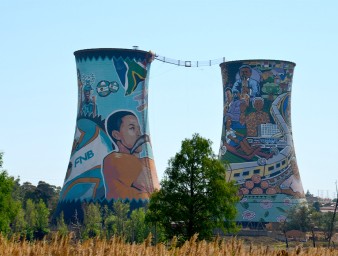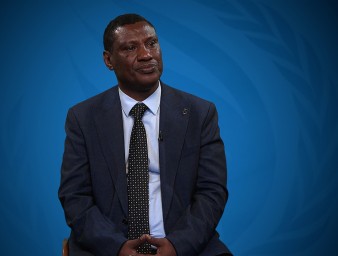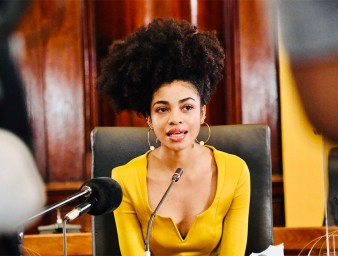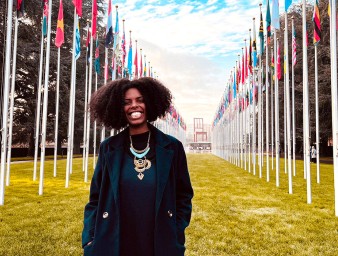Spotlight on indigenous rights at COP22 climate talks
17 November 2016
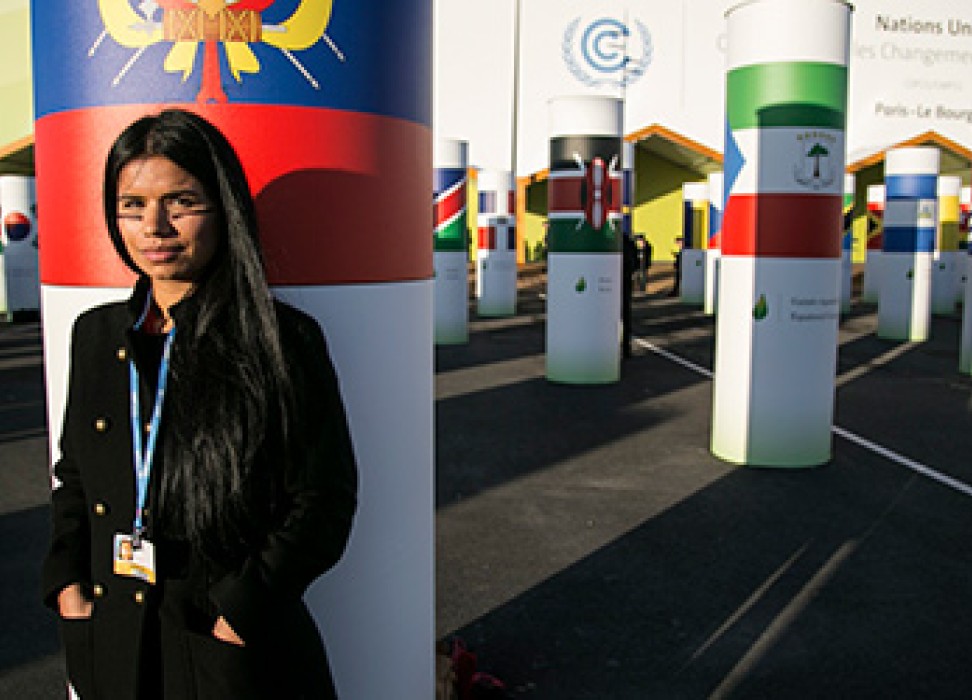
“When I was seven years old, an oil company came to my village,” says Nina Gualinga, 23, recalling how her indigenous Kichwa community was offered $10,000 to allow oil operations in the 136,000 hectares of pristine rainforest that make up the Kichwa territory in the Ecuadorian Amazon.
“Our territory is a place where we live in harmony with nature,” said Gualinga who has spent most of her life engaged in her community’s fight to save their land from oil exploitation. For the people of Sarayaku, protecting their forests is about keeping oil in the ground and preventing deforestation in order to defend their lands and way of life.
Without receiving the community's permission, the oil companies arrived in helicopters in the early 2000s. When the Kichwa people resisted, State military forces arrived to beat the men, bury dynamite under indigenous land and cut down the forest. The Kichwa took their case to the Inter-American Court on Human Rights in San Jose, where in 2012 the people of Sarayaku achieved a major victory when the court ruled that the government must consult indigenous communities before licensing oil companies to do business on indigenous territory.
Although the Kichwa won their court case, their land remains under threat, and Gualinga continues to fight for her land and her people's rights. She wants to protect forest resources for future generations and to secure the rights of indigenous peoples.
At the COP22 climate talks in Marrakech, Gualinga highlighted the impacts of climate change on the Kichwa people. Working with a network of indigenous activists, Gualinga is urging governments to prioritize climate justice for indigenous communities in climate actions aimed at reducing carbon emissions.
Like other indigenous communities, Gualinga’s people have contributed the least to climate change but are bearing the brunt of its impacts. Speaking on a panel about community adaptation to reduce disaster risk and build resiliency against climate change, Gualinga described the impacts of climate change her village has already begun to see. She noted that floods that used to come every 15 to 20 years, now occur two or three times in a single year.
“We see these changes because we live so close to nature,” she says. “Our entire livelihood depends on a healthy environment.”
On the entry into force of the Paris Climate Change Agreement on 4 November, UN High Commissioner for Human Rights Zeid Ra’ad Al Hussein called on States to prioritize the protection of the rights of people disproportionately affected by climate change. “I urge all the parties that will be at the COP22 in Marrakech to ensure that the meeting is about States taking action in accordance with their international human right obligations,” Zeid said.
Climate change affects a wide array of human rights, including the rights to life, water and sanitation, food, health, housing, self-determination, culture and development. In the face of these threats, Gualinga and other indigenous activists are demanding that climate action uphold human rights agreements and norms, especially for indigenous peoples.
Thursday 17 November marks the first Climate Justice Day, taking place during the Convention of the Parties (COP) climate change conference in Marrakech. The day focuses on importance of embedding human rights into climate action.
17 November 2016

